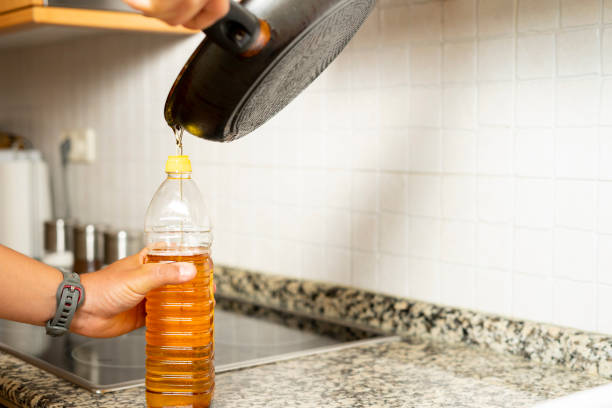Cooking oil is a fundamental ingredient in many recipes, particularly in various cuisines around the world. In Bengali cooking, for instance, oil plays an integral role in almost every dish. However, a common practice is to save leftover oil from cooking for future use. But is this practice truly safe for our health?
Reusing oil that has already been heated can lead to several health risks. Studies suggest that the process of repeatedly heating oil can produce harmful compounds that may increase the risk of conditions such as acidity, heartburn, stroke, Parkinson’s disease, heart problems, and even cancer. When oil is heated at high temperatures multiple times, it undergoes chemical changes that can render it dangerous for consumption. Therefore, it is crucial to exercise caution when considering the reuse of leftover cooking oil in order to maintain good health.
Let’s delve deeper into the potential problems associated with reusing cooking oil.
Hello everyone ! Welcome to SasVibe.
Health Risks Associated with Reusing Cooking Oil
- : Repeatedly heating the same oil can lead to the creation of toxic substances. This can result in food contamination, which is harmful to the body. When oil is repeatedly heated, it can develop an unpleasant odor and produce harmful compounds such as HNE, which can elevate cholesterol levels and increase the risk of heart disease.
- Loss of Nutritional Value: When oil is reused, it can retain microscopic residues from previous cooking. This leads to various chemical changes in the oil, which can diminish the flavor and nutritional quality of even freshly cooked meals, ultimately posing a risk to health.
- Digestive Issues: Using old oil can lead to digestive problems, including acidity and stomach discomfort. If this practice continues over an extended period, it may contribute to liver issues and increase the risk of cancer.
- Increased Trans Fats: Each time oil is heated, the amount of trans fats can increase, which is linked to heart disease, high blood pressure, and elevated cholesterol levels.
- Higher Free Radicals: Used oil can generate free radicals, which damage cells and accelerate the aging process.
Best Practices for Reusing Cooking Oil
While reusing leftover oil is not advisable, there are circumstances where it may be done safely. Here are some guidelines to follow if you choose to reuse cooking oil:
- Cool and Strain the Oil: After frying, allow the leftover oil to cool down, then strain it to remove any food particles. Store the filtered oil in an airtight container, ensuring no food residues remain.
- Check the Oil’s Condition: Before using previously stored oil, inspect its color and texture. If the oil appears discolored or has become unusually thick and sticky, it’s best to discard it.
- Avoid Using Oil from Deep Frying: Oil used for deep frying should generally not be reused. However, depending on the oil’s quality and how it was used, you may consider reusing it for cooking purposes rather than frying.
It’s essential to remember that food serves not just to fill our stomachs but also as fuel for our bodies. Thus, we need to be mindful of every ingredient we use in cooking. Repeatedly heating or reusing oil can be detrimental to our health, potentially leading to heart disease, digestive problems, and even increasing cancer risks. For a healthier lifestyle, it is advisable to avoid reusing oil, focus on pure and healthy cooking methods, and cultivate a conscious eating habit. A little caution can be the key to long-term wellness.
In conclusion, while it may be tempting to reuse leftover cooking oil to minimize waste or save costs, the potential health risks associated with this practice are significant. Prioritizing fresh and safe cooking oils will contribute to better health outcomes and overall well-being.



